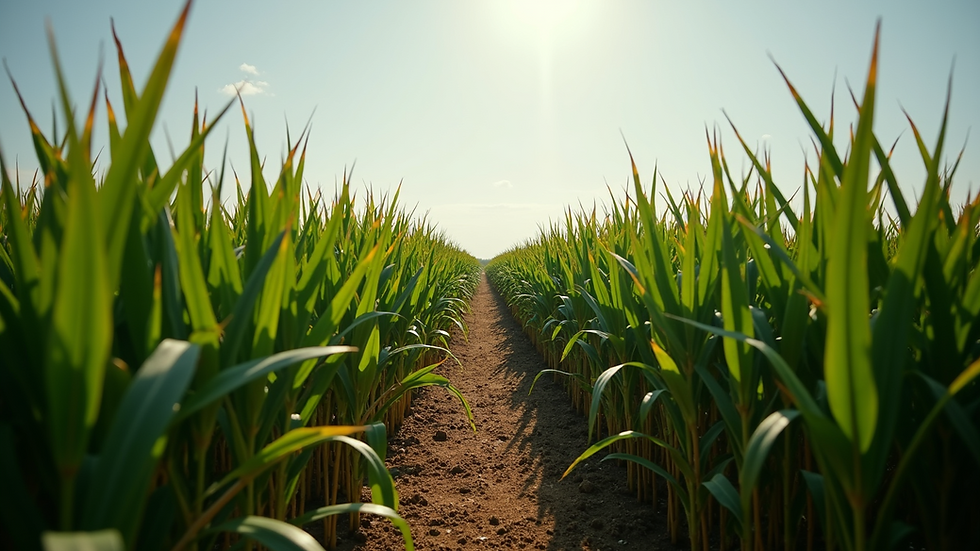Key Brazilian Sugar Exporters to Know
- Writer
- Aug 1, 2025
- 4 min read
Brazil is one of the largest sugar producers globally, and its sugar industry plays a vital role in the country’s economy. With vast sugarcane plantations, Brazil not only meets domestic demand but also serves numerous international markets. This article will introduce you to important sugar export companies in Brazil, providing insights into their operations and contributions to the global sugar supply.
Sugar Export Companies Brazil
Understanding the key players in Brazil's sugar export market can help stakeholders make informed decisions. Below are some of the leading sugar export companies in Brazil, highlighting their unique offerings and roles in the market.
1. Cosan
Cosan is one of Brazil's largest sugar and ethanol producers. Known for its expansive operations, the company engages in sugar production through its subsidiary, Raízen, which operates numerous sugarcane mills. Cosan has prioritized sustainability, implementing practices that aim to reduce environmental impact.

Cosan produced about 10 million tons of sugar in the last fiscal year, enabling significant exports. Their state-of-the-art facilities and logistics ensure timely delivery to international markets. As a major player, Cosan continuously invests in technology to optimize production processes and enhance product quality.
2. Grupo Eteco
Grupo Eteco is another notable company in the Brazilian sugar export sector. They focus on high-quality sugar production, capturing a portion of the premium market. Renowned for their commitment to quality assurance, Grupo Eteco employs strict processing standards that comply with international regulations.

Their production facilities are equipped with modern technology, which helps maintain high purity levels. Moreover, Grupo Eteco engages with local farmers to ensure sustainable practices are maintained throughout the supply chain.
3. Usina São Martinho
Usina São Martinho is one of Brazil's oldest and largest sugar mills in operation. Founded over a century ago, the company boasts a rich history and expertise in sugar production. It has a diversified portfolio that includes sugar, ethanol, and energy.

The company produced over 3 million tons of sugar in the last harvesting season, contributing significantly to exports. Usina São Martinho invests heavily in innovative technologies and renewable energy initiatives, proving that sustainability can coexist with profitability.
Does the US Import Sugar from Brazil?
Yes, the United States imports sugar from Brazil, among other countries. In 2022, Brazil was one of the top suppliers to the U.S. market, providing nearly 25% of its sugar imports. The trade dynamics are influenced by various factors including tariff regulations under the U.S.-Mexico-Canada Agreement (USMCA) and the overall demand for sugar in America.
Brazilian sugar is increasingly favored due to its competitive pricing and high quality, which appeals to U.S. manufacturers. Furthermore, as the U.S. seeks to diversify its sugar suppliers and minimize supply chain disruptions, Brazilian sugar exporters play a critical role in fulfilling this need.
The Importance of Sugar Exports to Brazil
Sugar exports are not just a revenue source for Brazil; they also drive employment opportunities and economic growth in rural areas. With vast farmlands dedicated to sugarcane cultivation, the industry supports millions of jobs across farming, processing, and transportation.
The Brazilian sugar industry is also pivotal in enhancing the country's trade relationships. By exporting sugar to numerous countries, Brazil cultivates strategic partnerships that can benefit other sectors, including agriculture and industrial manufacturing.
Brazil’s position as a leading sugar exporter is further strengthened by its investment in research and development to improve yields and sustainability practices. The integration of technology allows Brazilian exporters to remain competitive while meeting the growing global demand for sugar.
Choosing the Right Partner
For businesses looking to engage with Brazilian sugar exporters, understanding market trends is crucial. Identifying reliable partners involves researching the company’s market position, compliance standards, and sustainability initiatives.
When sourcing from Brazil, consider factors such as:
Quality assurance certifications
Supply chain transparency
Environmental and social governance practices
These aspects not only ensure the quality of sugar but also align with ethical sourcing practices that resonate with consumers today.
Future Trends in Sugar Exporting
As global demand for sugar fluctuates, Brazilian sugar exporters adapt to changing markets. The current trend indicates a growing preference for sustainable sugar production methods. This shift may favor businesses that prioritize environmental responsibility and transparency in their operations.
Moreover, innovations in sugar production, such as genetically modified crops designed for higher yields, are being explored. However, these advancements must be balanced with regulatory standards and consumer acceptance.
Ultimately, the future of sugar exports in Brazil looks promising. The sustained support for agricultural practices and technological advancements will help maintain the country’s status as a global sugar powerhouse.
Final Thoughts
Brazilian sugar exporters play a crucial role in the international supply chain, affecting global prices and availability. With companies like Cosan, Grupo Eteco, and Usina São Martinho leading the way, Brazil's sugar industry is on a path of continuous improvement and sustainability.
By understanding the dynamics of this sector, businesses, and consumers can make informed choices that impact not just their bottom line but also the environment and communities involved in sugar production.
For more detailed insights about the sugar export industry, consider exploring resources from brazil sugar exporters.



